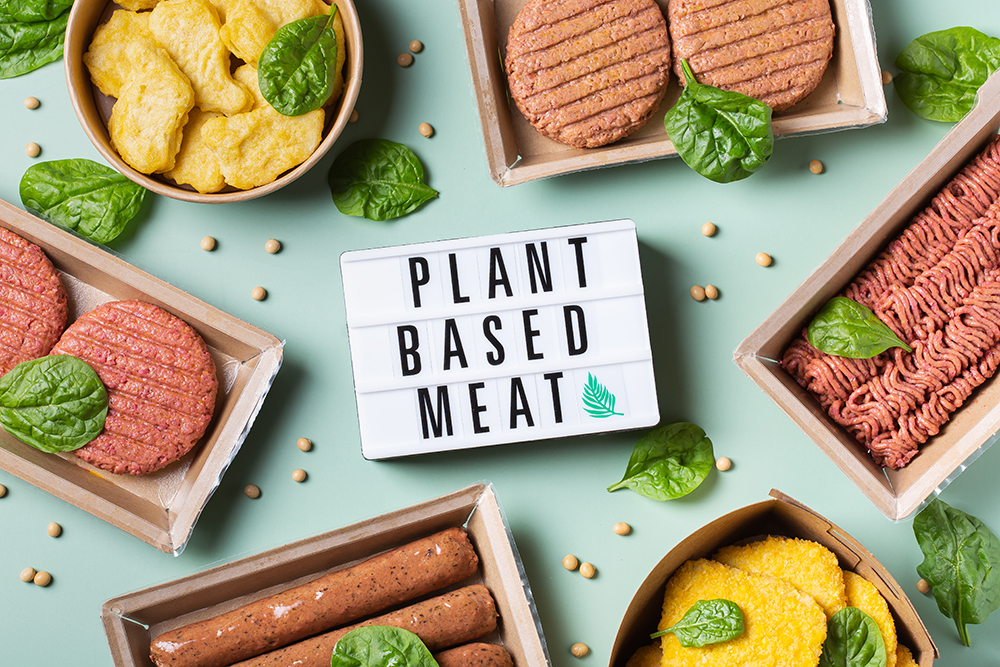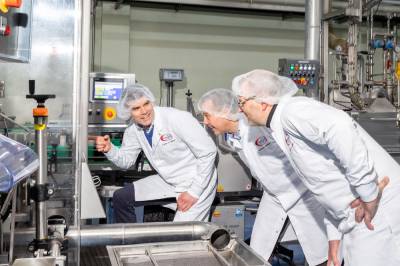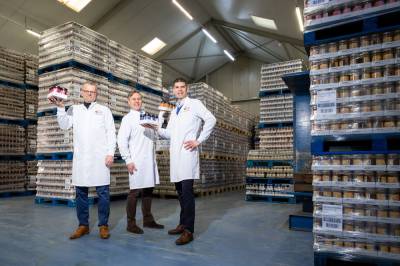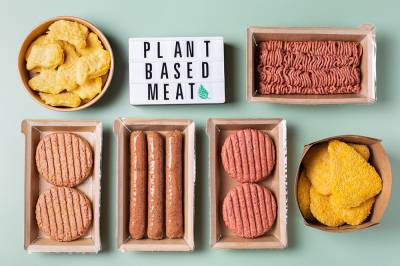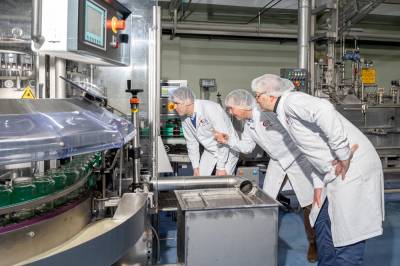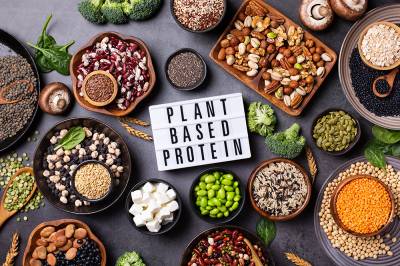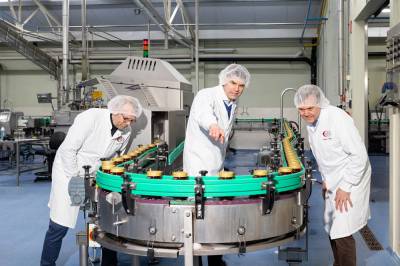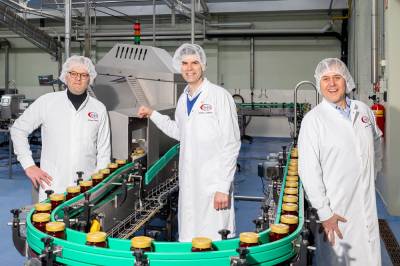






Plant-Based Manufacturing: The Future of Meat Alternatives
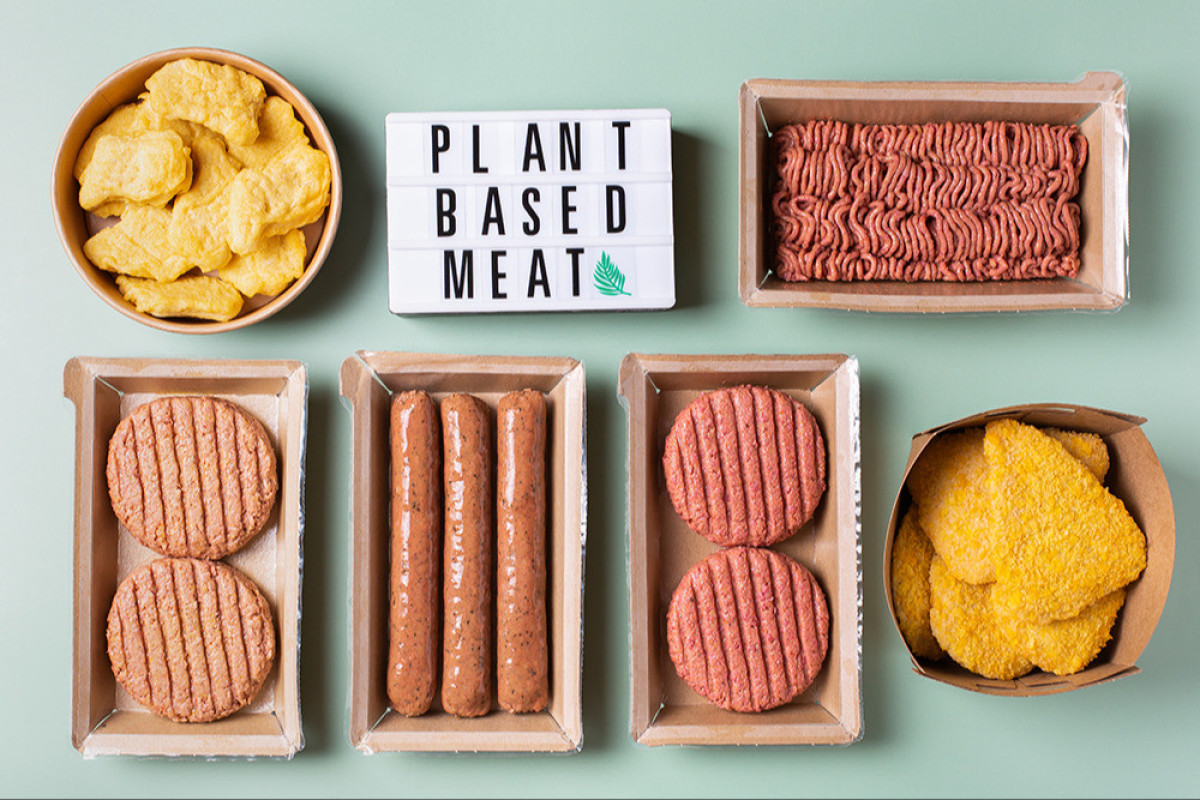
The global food industry is undergoing a significant transformation, driven by a rising demand for sustainable and health-conscious alternatives to traditional meat products. This seismic shift is leading many companies to explore the realm of plant-based meat alternatives. However, this journey is not without its complexities and misconceptions.
Understanding the Landscape
The transition to plant-based meat manufacturing is more than just a change in ingredients; it represents a fundamental shift in food production philosophy and techniques. There's a prevalent misconception that this transition is straightforward and merely requires substituting animal-based components with plant-based ones. However, the reality is far more complex.
- Sourcing Challenges
Finding reliable sources for high-quality plant-based ingredients is a key challenge. It's not just about replacing meat with plants but finding the right plants that offer the desired taste, texture, and nutritional value. - Production Nuances
The production process for plant-based meats involves unique techniques and technologies. Traditional meat processing facilities can't always be directly adapted for plant-based production, requiring significant modifications or entirely new setups. - Market Dynamics
Understanding consumer preferences and market trends is crucial. The plant-based sector is rapidly evolving, with consumer tastes and expectations continually changing. Also see our vision on trends, opportunities and challenges in this market: click here. - Regulatory Compliance: Navigating the regulatory landscape of plant-based products, which can differ significantly from traditional meat, is another critical aspect. This includes labeling, health claims, and safety standards.
By addressing these complexities and clearing up misconceptions, companies can better navigate the intricacies of plant-based meat manufacturing and position themselves effectively in this burgeoning market.
Understanding the Challenges in Plant-Based Meat Manufacturing
The shift towards plant-based meat alternatives represents a significant change in the food industry. This transition, while promising, is accompanied by several critical challenges. It's essential for companies venturing into this space to be aware of these hurdles, as understanding them is the first step towards devising effective strategies for overcoming them.
Key Challenges in Plant-Based Meat Production
Consumer Preferences: Navigating the evolving tastes and dietary preferences of consumers is complex. Failing to align products with these preferences can lead to market disconnect.
- Production Costs
The transition to plant-based manufacturing often involves unforeseen expenses. Underestimating these costs can lead to significant financial strain. - Taste and Texture Quality
Replicating the taste and texture of traditional meat is a major challenge. Falling short in this aspect can greatly affect a product's acceptance in the market. - Supply Chain Management
Establishing a reliable supply chain for quality plant-based ingredients is crucial. Inconsistencies here can lead to product availability issues and quality fluctuations. - Technological Requirements
The need for specialized technology and equipment in plant-based meat production is often underestimated, which can hinder both product quality and scalability. - Regulatory Compliance
Keeping up with and adhering to the varied regulatory requirements of plant-based products is critical to ensure market entry and maintain consumer trust. - Sustainability Challenges
While plant-based products are more sustainable, addressing the full spectrum of sustainability, including packaging and distribution, is a complex task. - Marketing Strategies
Crafting effective marketing strategies to communicate the unique benefits of plant-based products is essential for successful market penetration. - Protecting Intellectual Property
In the context of contract manufacturing or outsourcing, safeguarding intellectual property and trade secrets is a significant challenge. Ensuring the security of proprietary information and production techniques is crucial in a competitive market.
Alternative Approach: The Cibus Nexum FoodFlow Method
Transforming Challenges into Opportunities
In the dynamic world of plant-based meat manufacturing, the obstacles are as diverse as they are daunting. To navigate these successfully, Cibus Nexum presents a novel approach: the FoodFlow Method. This method addresses the common pitfalls in plant-based manufacturing by providing a structured, efficient, and quality-focused pathway from concept to market.
Unveiling the Benefits of the FoodFlow Method
The FoodFlow Method is more than just a set of procedures; it's a strategic tool that reshapes how companies approach food production. Here's how it turns challenges into triumphs:
- Customization at Every Step: Tailoring each stage to your company's unique needs ensures that the final product aligns perfectly with your brand and target audience.
- Strategic Partner Selection: By leveraging our extensive network, we connect you with the ideal manufacturing partners, streamlining your scale-up and innovation process.
- Enhanced Market Positioning: Our method has a proven track record of helping businesses elevate their market presence and achieve sustainable growth.
Detailed Process Description: The FoodFlow Method in Action
The FoodFlow Method
Discover the power of the FoodFlow Method - a revolutionary approach that transforms your food production. With this innovative method you optimize your processes, increase efficiency and achieve impressive results.

Brand / scaleup
Manufacturer
Curious about how the FoodFlow Method can lead your company to success? Download our whitepaper and discover the method behind this groundbreaking concept.
A Step-by-Step Journey to Excellence
The FoodFlow Method is a meticulously designed, four-phase process that redefines food production efficiency and quality.
- Phase 1 - Design: We start by establishing a thorough understanding of your project's scope and aspirations. This phase sets a solid foundation for the entire process.
- Phase 2 - Find: Our team utilizes an expansive network to identify and vet potential manufacturing partners, ensuring we find a match that resonates with your unique requirements.
- Phase 3 - Onboard: Here, we facilitate in-depth discussions and negotiations with shortlisted candidates, ensuring that the selected partner aligns perfectly with your business goals.
- Phase 4 - Launch: This final phase focuses on setting up a robust action plan with your chosen co-manufacturer, covering everything from commercial agreements to preparing for the first production run.
Each phase of the FoodFlow Method interconnects to enhance every facet of food production, ensuring that the whole operation is more efficient and effective than the sum of its parts.
Real-World Success Stories
Note to Readers
The following case studies are based on real scenarios where Cibus Nexum's FoodFlow Method has been applied. The names of the companies have been anonymized to maintain confidentiality and respect our clients' privacy.
Case Studies: Demonstrating the Power of the FoodFlow Method
PlantPro Innovations (Anonymized for Confidentiality)
Background
PlantPro Innovations, a young and rapidly growing company, had developed a unique meat alternative through their R&D efforts. With bold and successful marketing strategies, they were expanding quickly. However, their growth was hindered by the limited capacity of their comanufacturing partner.
Solution with the FoodFlow Method
Cibus Nexum stepped in with a strategic solution. We retained their existing comanufacturer for producing the base ingredient and handling local processing and packaging. To enable growth in other regions, we developed a strategy for establishing regional comanufacturing hubs. This approach allowed PlantPro Innovations to expand step by step, region by region, without overburdening their original comanufacturing partner. This company can now fully focus on scale up technology regarding the production of the semi-finished-goods, whist having a dichtgetimmerde arrangement with our client, including IP rights.
Outcome
The implementation of this strategy resulted in accelerated growth for PlantPro Innovations, enabling them to meet rising demand across different regions without compromising quality or delivery times.
Case Study 2: GreenChoice Foods
Background
GreenChoice Foods, a well-known provider of plant-based meat alternatives, outsourced bulk production to specialized parties. However, one of their suppliers was facing quality issues and supply chain unreliability, putting GreenChoice's market position at risk.
Solution with the FoodFlow Method
Recognizing the sensitivity of the situation, Cibus Nexum was tasked with discreetly finding an alternative supplier. This approach ensured that GreenChoice Foods could maintain their existing relationship while exploring more reliable options.
Outcome
Our team successfully identified and transitioned to a new supplier, resolving the quality and supply chain issues. This change was made seamlessly, ensuring no disruption to GreenChoice Foods' market presence or customer trust.
These case studies demonstrate the versatility and effectiveness of the FoodFlow Method in addressing diverse challenges within the plant-based manufacturing sector. By providing tailored solutions and strategic insights, Cibus Nexum ensures that companies like PlantPro Innovations and GreenChoice Foods can continue to thrive and grow in this dynamic industry.
Expertise and Experience: The Cibus Nexum Advantage
A Fusion of Knowledge and Network
At Cibus Nexum, our expertise extends beyond the boundaries of traditional food production knowledge. We are at the forefront of the plant-based manufacturing revolution, backed by an extensive network and deep-rooted industry experience.
- Expansive Network
A key component of our strength lies in our vast network, encompassing over 150 producers in the plant-based meat sector. This network is not just a list of contacts; it represents our active relationships with these companies, often including personal connections at the C-level. - Industry Insights
Our team is equipped with profound and up-to-date knowledge of the plant-based manufacturing domain. This expertise is continually honed to align with evolving market trends and technological innovations. - Proven Track Record
Cibus Nexum's history is marked by impactful collaborations and success stories. We have guided businesses from initial hurdles to market dominance, demonstrating our ability to deliver solutions that foster growth, efficiency, and market resonance. - Customized Strategies
Understanding that each client has unique needs, we tailor our solutions to ensure not only success but also long-term sustainability in outcomes.
Reliability and Results-Driven Approach
Our extensive experience and broad network place us in a unique position to address the varied and complex challenges of the plant-based food industry. From supporting startups to optimizing operations for established companies, Cibus Nexum is synonymous with reliability and success in food production.
Risks of a Non-Specialized Approach
The Downfalls of Going Without Expertise
Opting for a generalized approach in plant-based manufacturing can lead to significant pitfalls:
- Quality and Compliance Risks
Without specialized knowledge, companies face the danger of producing inferior products or failing to comply with stringent industry regulations. - Inefficiency and Cost OverrunsGeneralized methods often result in production inefficiencies, leading to higher costs and diminished profit margins.
- Market Disconnect: A lack of expert insight can lead to products that are out of touch with consumer demands and market trends, impacting sales and market positioning.
- Sustainability Oversights: Non-specialized approaches may neglect crucial aspects of sustainability, affecting both the environmental impact and consumer perception of the brand.
By partnering with Cibus Nexum, companies gain access to specialized knowledge, an extensive network of industry leaders, and a track record of successful, sustainable solutions in the plant-based food sector.
Conclusion and Call to Action: Join the Plant-Based Revolution with Cibus Nexum
Embracing the Future of Food Production
In this rapidly evolving landscape of plant-based food production, the journey from concept to consumer is fraught with challenges and opportunities. Cibus Nexum stands at the forefront of this revolution, offering the expertise, experience, and an extensive network that can transform these challenges into triumphant successes.
Our FoodFlow Method, backed by a deep understanding of the industry and an expansive network of over 150 plant-based meat producers, is more than a process—it's your gateway to innovation, efficiency, and market leadership. From navigating complex manufacturing processes to ensuring sustainability and compliance, Cibus Nexum is your strategic partner in every step of your plant-based journey.
The Time to Act Is Now
Don't let the complexities of plant-based manufacturing hold you back. Whether you are a burgeoning startup or an established company looking to expand your footprint in the plant-based market, Cibus Nexum has the tools, the team, and the technology to propel your business forward.
- Seek Expert Guidance
Avoid the common pitfalls of plant-based manufacturing with our specialized knowledge and comprehensive approach. - Leverage Our Network
Tap into our vast network of industry-leading producers and benefit from our strong relationships at the executive level. - Achieve Sustainable Growth
Embrace a method that not only addresses today's challenges but also positions you for future success in an increasingly competitive market.
Take the First Step Towards Innovation
We invite you to reach out and discover how Cibus Nexum can make a difference in your plant-based manufacturing journey. Contact us for a consultation, and let's explore how our expertise and the FoodFlow Method can be tailored to your specific needs and aspirations.
Transform your challenges into opportunities. Embrace the future of food production with Cibus Nexum.
Contact Cibus Nexum today – where vision meets innovation in plant-based food production.
Get in touch with us to start your journey towards plant-based excellence.
Sign up for the latest tips and that you can put into practice right away.

Call me back request


